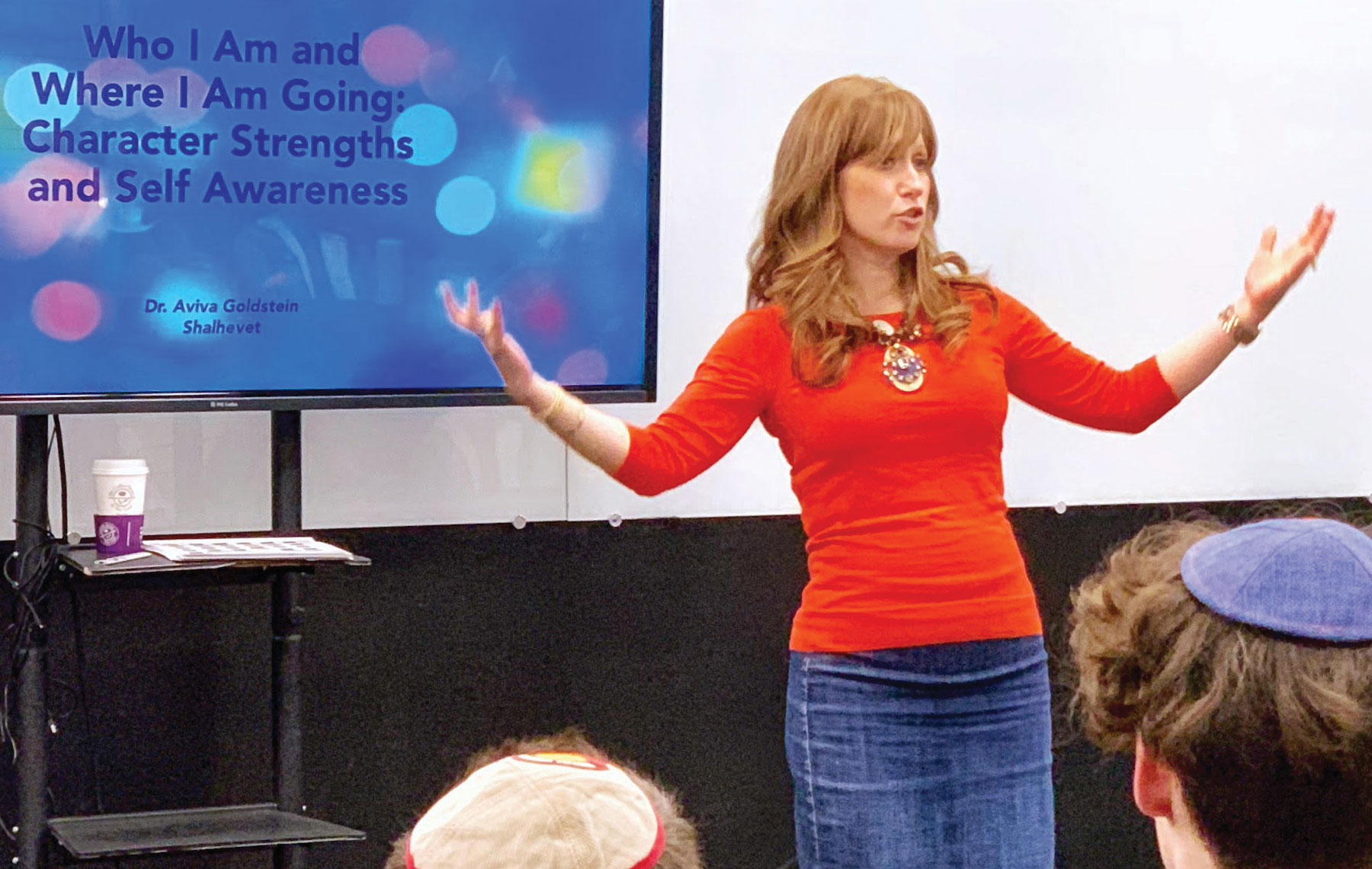 Aviva Goldstein; Photo courtesy of Sarah Emerson
Aviva Goldstein; Photo courtesy of Sarah Emerson According to a January 2018 CommonSense Media/SurveyMonkey online poll, 47 percent of parents believe their children are addicted to mobile devices. Half of the 1,024 parents with children younger than 18 surveyed said they were concerned about how their child’s mobile device is having a negative effect on his or her mental health.
Hoping to address these concerns and other parenting issues in an increasingly digital world, Shalhevet High School and Young Israel of Century City brought Aviva Goldstein, a Jerusalem-based educator and family counselor, to Los Angeles last month.
Goldstein was a scholar-in-residence for a week at Shalhevet, where she spoke with parents and children, and gave talks on issues ranging from screen time to adolescent religious development to how to raise resilient kids.
Sarah Emerson, chief operating officer at Shalhevet, told the Journal the school decided to bring in Goldstein because of her background in Jewish education and positive psychology. “We appreciate her unique approach of translating research findings from positive psychology to her lay audience while demonstrating relevance of Judaism to contemporary life,” Emerson said. “Her energy, enthusiasm and infectious smile permeated the halls of Shalhevet this week and our entire community benefited.”
In a phone interview with the Journal, Goldstein said she decided to speak about screen time because it’s a topic that comes up most frequently with parents. “Of all the concerns that parents have now, this is the greatest question. No one really knows what to do about it. For better or worse, unfortunately a lot of work is on the parents themselves to see what kind of behaviors they’re modifying for kids. It’s hard to tell your kids to put their screen down when you’re constantly checking [your own].”
“Parents need to have an awareness that when a kid is acting up it’s not about the content of the argument but what’s happening beneath the argument.” — Aviva Goldstein
The tips Goldstein offered to parents include treating mobile devices like candy. Maybe no devices are allowed in the home, or they are locked in a cabinet or parents simply teach their children when it’s appropriate to use devices and trust that their children will use their best judgment. Some families don’t want anyone using phones as they enter the house after work or school. Others don’t allow their children to use their devices in their bedrooms or when the family is in the car. It’s all about creating no-phone zones, Goldstein said.
However, Goldstein did acknowledge that mobile devices are part of our everyday lives, and sometimes there’s no getting around them. Instead of being passive about children’s mobile-device usage, she suggested parents take a more active role. Examples include playing games with their children on these devices, or sharing with them interesting content they find online and encouraging their children to do the same.
“You can use it as an opportunity to nurture the relationship between parents and children instead of throwing up your hands and saying there’s nothing you can do about it, because that’s not the case,” Goldstein said.
Along with the screen time talk, Goldstein touched upon the difficulties teens have with their religious development. She said that adolescents have a hard time with double standards, because they focus on justice and fairness and things making sense. They don’t know what to think when parents come down hard in certain areas but are very lax in others. For example, she said, parents may prioritize going to shul, but they still speak lashon-harah (derogatory speech about others).
“I don’t think it’s my job to tell parents what they should be doing,” Goldstein said. “Most parents have a pretty good sense as to what works for their families. Parents need to have an awareness that when a kid is acting up, it’s not about the content of the argument but what’s happening beneath the argument.”























 More news and opinions than at a Shabbat dinner, right in your inbox.
More news and opinions than at a Shabbat dinner, right in your inbox.